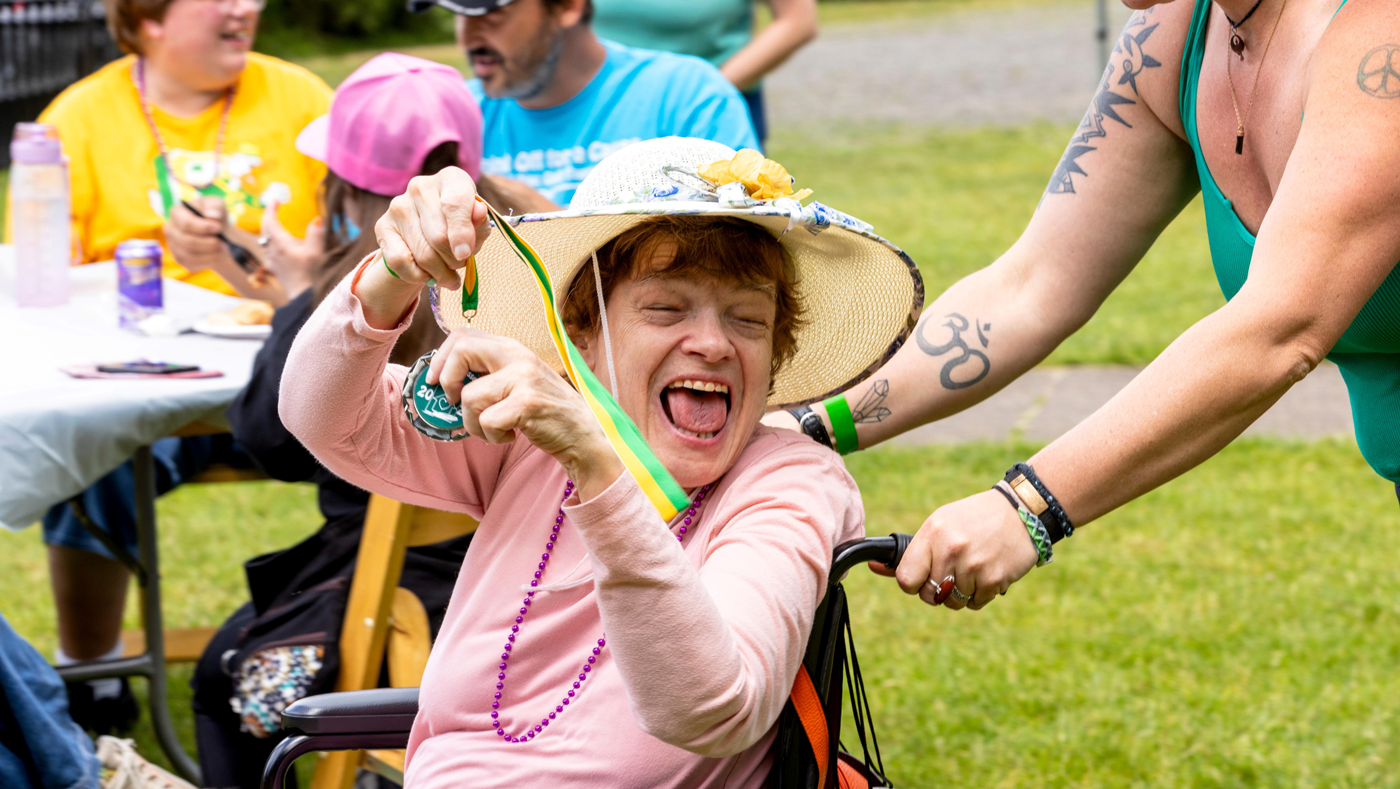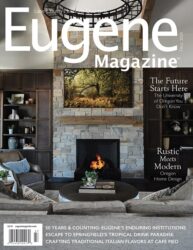The lives of adults with intellectual and developmental disabilities are enriched through the Oregon Supported Living Program (OSLP), a community integration and person-centered nonprofit agency serving the Eugene-Springfield area for more than 45 years.
OSLP Development Director Jessica Baker says her agency helps settle clients in one of two kinds of living situations while also helping them find employment and integrate with their community.
This approach differs, she adds, from the more “authoritarian” and institution-based intellectual and developmental disability services of the past.
In the Eugene-Springfield area, OSLP owns 17 family-style homes where up to four residents live, matched on their interests, abilities, and living styles. Because of their intellectual and developmental disabilities, these residents require daily support from OSLP’s trained professionals. Other people OSLP supports access services while living in housing they choose with friends, family, or independently. These individuals may not require 24-hour support in a residential program, so OLSP provides assistance throughout the week as needed.
“The person with disabilities drives their support plan,” Baker says, outlining OSLP’s guiding philosophy. “They choose what their living situation will look like. They are the ones that decide what their day will be.”

Once they are settled in a good living situation, Baker says, “the people we support are encouraged to get out in the community, go on day trips, see museums, and find engaging employment,” based on their needs and abilities.
OSLP is mostly funded with public dollars through the Oregon Department of Disability Services, which assigns a caseworker to clients interested in OSLP.
“That caseworker then determines the levels of support they need and helps them find a program,” Baker says. “Clients could be determined to require as much as 24-hour support or as little as a few hours per week. Support staff administer medication, handle sanitary needs, cook and serve meals, and help the person we support manage doctor’s appointments, finances, classes, or employment.”
According to Baker, OSLP staff also sit down with each program participant once a year and develop an individualized support plan and discuss other personal goals, such as learning how to ride a bike, taking a hike once a week, or reading four books a month.
“People in our community could be living in a neighborhood right next to an OSLP house, and from the outside, there’s nothing different,” Baker says. “And quite frankly, on the inside as well: It looks like a single-family house with folks living there as roommates.”
Evan Mojica is a Direct Support Professional. Working at OSLP for two years, Mojica says, “means having a community. I recognize friends whenever I work at an event in town or attend them with my family,” Mojica says. “Having worked in this field since I was 18 years old, I know I have become a more open, understanding, and adventurous person, due to the people around me.”
OSLP client Susan has lived at an OSLP residential home for 18 years and she also mentions community when she refers to the support the nonprofit provides her. Susan’s last name must remain private to comply with the Health Insurance Portability and Accountability Act (HIPAA) regulations. Susan has lived at an OSLP residential home for 18 years.
“I found a blessed and friendly living space at OSLP after overcoming cancer,” Susan says. “Life is much better now. My favorite things to do are creating art and dancing at parties. I love to help people and help animals.”
Susan and all of OSLP’s clients are a boon to the Eugene-Springfield area, Baker says. “Our community is enriched by people living their lives in the fullest, most authentic way possible.”
Oregon Supported Living Program
412 Pearl St.
541/343.4196

